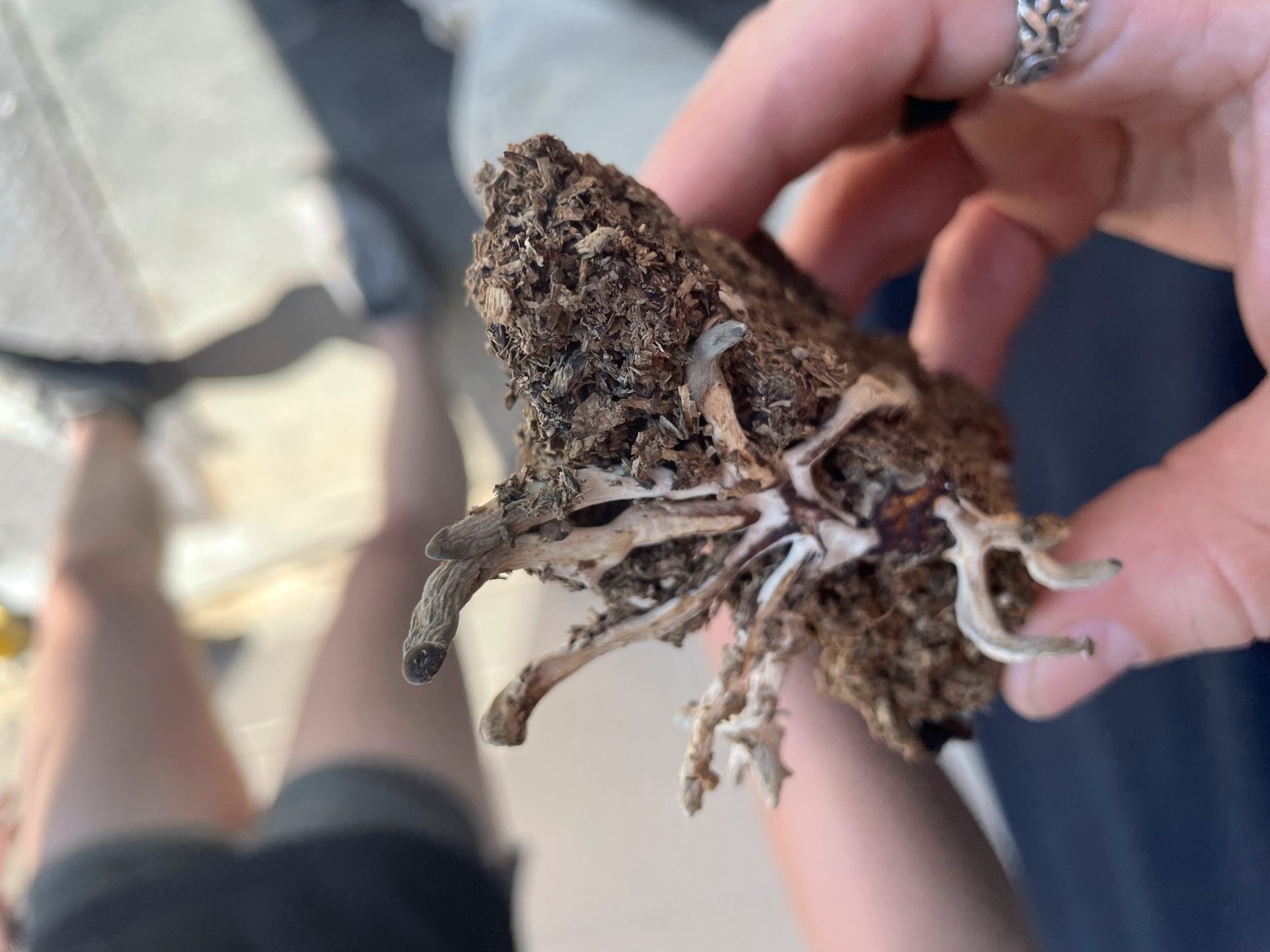
All photos courtesy of Lendlease.
How to properly dispose and limit construction waste is a topic that comes up time and time again in our industry. Recently, Lendlease, Rubicon Technologies, Inc., Mycocycle, and Rockwood Sustainable Solutions, announced the completion of a successfully partnered pilot involving used asphalt shingles, mushrooms, and mycoremediation technology to reduce construction and demolition waste in order to produce a sustainable and reusable product to further create a more circular economy.
According to the Environmental Protection Agency, 11 to 13 million tons of asphalt shingles end up in landfills each year, where they take upwards of 300 years to break down. After seeing the large percentage of waste that was generated by used asphalt roofing shingles from a recent re-roofing project at their Fort Campbell Army installation in Kentucky, Lendlease, Rubicon, Mycocycle, and Rockwood Sustainable Solutions proposed a solution to reuse the material in a new capacity.
“Every asphalt shingle from those 214 homes would have gone to a landfill,” said Sara Neff, Head of Sustainability at Lendlease Americas. “There was simply no viable use for them. We understand the importance of reducing our Scope 3 carbon by diverting waste streams from the landfill. After teaming up with Rubicon, Mycocycle, and Rockwood Sustainable Solutions, we came up with an innovative idea using mycoremediation technology; combining mushrooms and shingles to break down waste materials and create a new by-product that could ideally be reintroduced for reuse, furthering a circular economy.”
With 15 standard colors, applied over textured or smooth surfaces, the versatility of StoColor® Metallic coating system provides a custom look for any project.

Shingle samples were gathered and transported to Rockwood Sustainable Solutions’ facility in Lebanon, Tenn. where Mycocycle, an environmental remediation company that uses fungi to decarbonize waste streams, performed what is believed to be a first-of-its-kind pilot study, mixing the sample with three strains of fungi, a process called mycoremediation.
“The successful completion of this pilot is a fantastic example of environmental innovation in action,” said Nate Morris, Chairman and CEO of Rubicon. “Our mission is to end waste, and it is innovations such as these that find second life circular solutions for hard-to-recycle materials.”
“This partnership has the potential to be a template for the future,” continued Neff. “Of those 11 to 13 million tons of asphalt shingles dumped in landfills each year, only 5-10 percent are being recycled. Taking a product that is no longer viable and combining it with a natural renewable source that results in a new product is a phenomenal outcome that is both beneficial to the environment and bolsters the economy.”
Additionally, the team is looking to manufacturers across the building industry and encouraging them to continue to focus on the impact these new materials can have on reducing emissions while making our supply chain more sustainable.
I’d love to hear your thoughts on this groundbreaking study, and if there are other innovative testing measures going on in the industry. Feel free to email me at lewisl@bnpmedia.com to continue the conversation.


Lindsay Lewis
Editor
